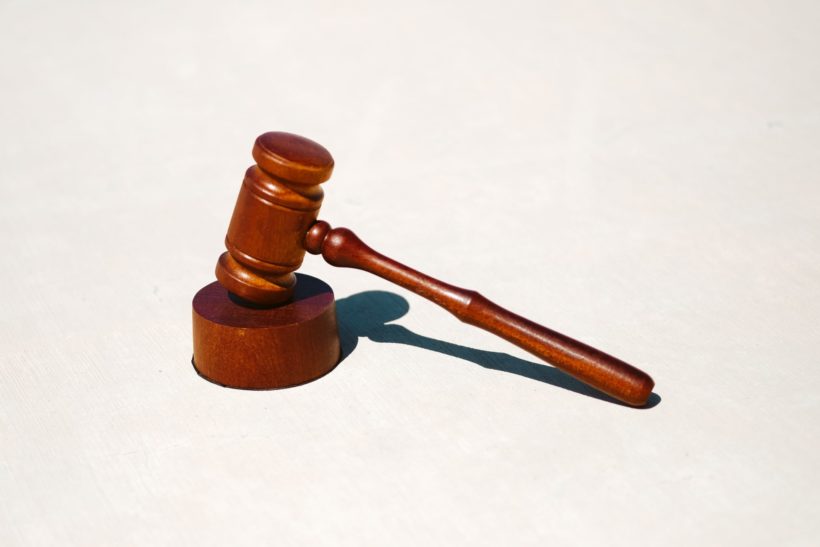The European Court of Human Rights (ECHR) has convicted Greece for serious omissions and multiple human rights violations over the sinking of a refugee boat in 2014, in which eight children and three women lost their lives.
During the early hours of January 20, 2014, the fishing boat transporting 27 refugees sank near the island of Farmakonisi in the southeastern Aegean Sea. The 16 applicants, including relatives of victims, stated in their testimonies that Greek authorities were carrying out a pushback operation. The boat capsized and sank while being towed by a vessel of the Greek Coast Guard in rough sea and at high speed towards Turkish waters. Greek authorities claimed, on the other hand, that they were guiding the boat towards Farmakonisi, as part of a search-and-rescue operation. Following a preliminary investigation into Greek Coast Guard responsibility, the Piraeus Naval Court Prosecutor rapidly archived the case in July 2014 with the approval of Athens’ Court of Review.
Initially, a 21-year-old Syrian refugee was accused of driving the boat and being responsible for the shipwreck. He was sentenced by the Greek Court to 145 years and 3 months in prison and a fine of 570,000 euros. A Court of Appeal ruled in 2017 that no person on the boat could have prevented the fatal shipwreck and commuted the Syrian’s sentence to ten years.
After having exhausted all remedies in the Greek Justice System, the 16 survivors of the Farmakonisi shipwreck with the support of five Greek and international organizations (Network of Social Support to Refugees and Migrants, Hellenic League for Human Rights, Greek Council for Refugees, Group of Lawyers for the Rights of Refugees and Migrants, Refugee Support Aegean / PRO ASYL) appealed to the ECHR in 2015.
Seven years later, the ECHR issued a historical ruling concerning Greece’s life-threatening practices and systemic deficiencies, and ruled that Greece violated the European Convention of Human Rights. Specifically, there had been two violations of Article 2 (Right to Life) and one of Article 3 (Prohibition of torture, inhuman or degrading treatment or punishment)1:
Greek authorities “had not carried out a thorough and effective investigation capable of shedding light on the circumstances in which the boat had sunk”, and second, they “had not done all that could reasonably be expected of them to provide the applicants and their relatives with the level of protection required by Article 2 of the Convention”. What needs to be mentioned is that since an in-depth investigation hadn’t taken place by Greece, the ECHR couldn’t decide whether a pushback operation had taken place or not.
On arriving in Farmakonisi, the shipwreck survivors had had to endure additional traumatic events. The Coast Guard officers had inflicted humiliating and undignified treatment against them. They had treated them violently and had ordered them to undress “at the same time and at the same place in front of at least 13 other people”. The ECHR found that “the strip-search (which the Greek Government did not explain why had been necessary to ensure safety) these applicants had undergone in such circumstances had amounted to degrading treatment within the meaning of Article 3 of the Convention. There had therefore been a violation of that Article”.
Greece has been ordered to pay a total of “330,000 euros for damages sustained by the applicants, broken down as follows: 100,000 euros to one of the applicants, 80,000 to three of the applicants jointly, 40,000 to another of the applicants, and 10,000 to each of the remaining 11 applicants”.
Τhe ECHR’s unanimous ruling is important mainly for two reasons:
First, it highlights that the authorities are expected to carry out thorough, independent, and effective investigations to shed light on the substance of any allegations. Second, the ruling brings again to the public debate the issue of mass pushbacks, the violations of fundamental human rights, and the violent and inhuman practices that have been taking place to prevent refugees and migrants from crossing Greece’s and EU’s borders.
States should and will be held accountable for their illegal practices and policies that put human lives in danger. They have the legal obligation to investigate whether people who come to their borders and territory are in need of international protection; they have the legal obligation to respect the international law and the principle of non-refoulement; they have the legal obligation to guarantee people’s rights. Above all, it is a matter of priority: the absolute and meaningful protection of human life comes before border control, and this is unnegotiable.
1 https://hudoc.echr.coe.int/eng-press#{%22itemid%22:[%22003-7380289-10089391%22]}






